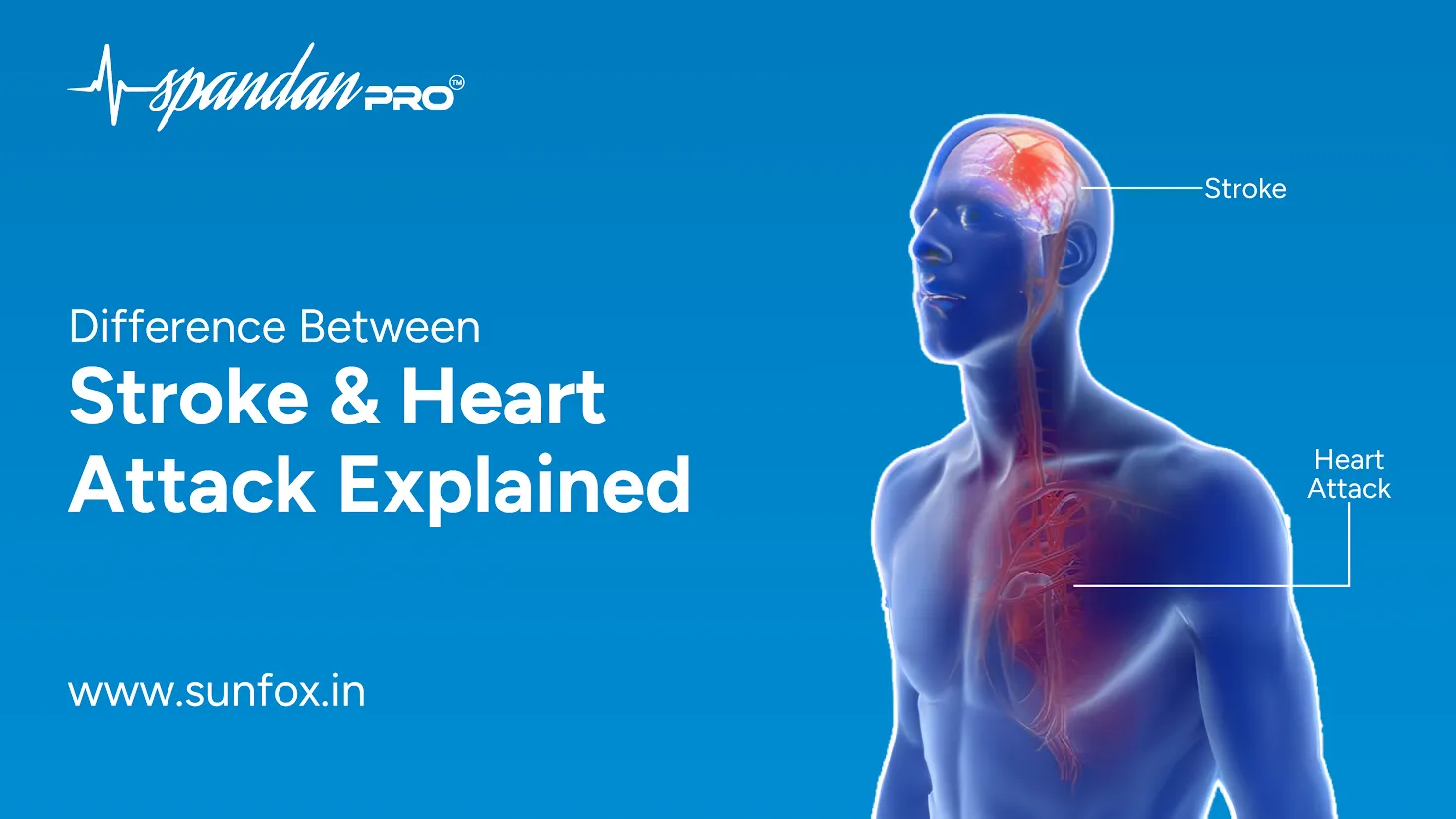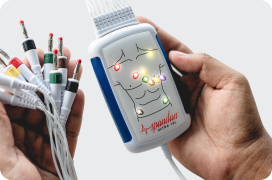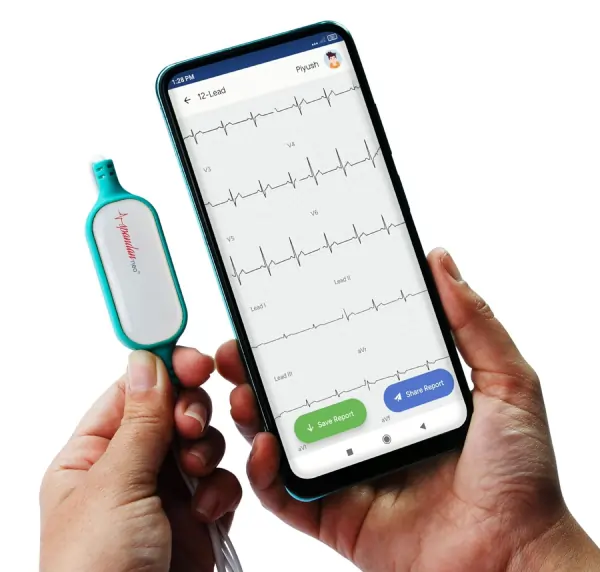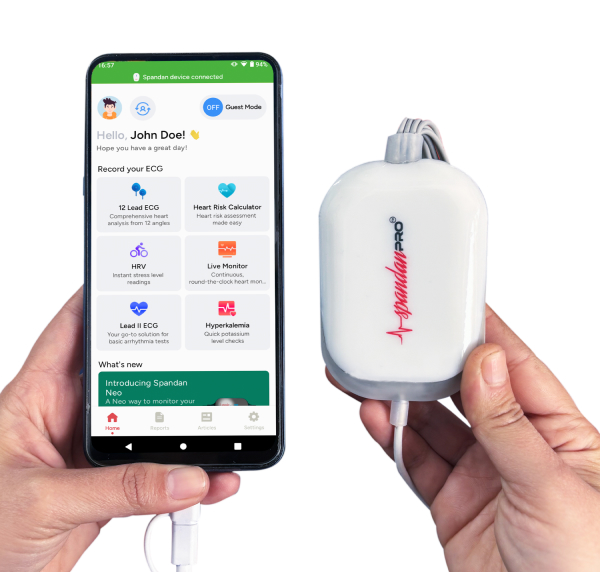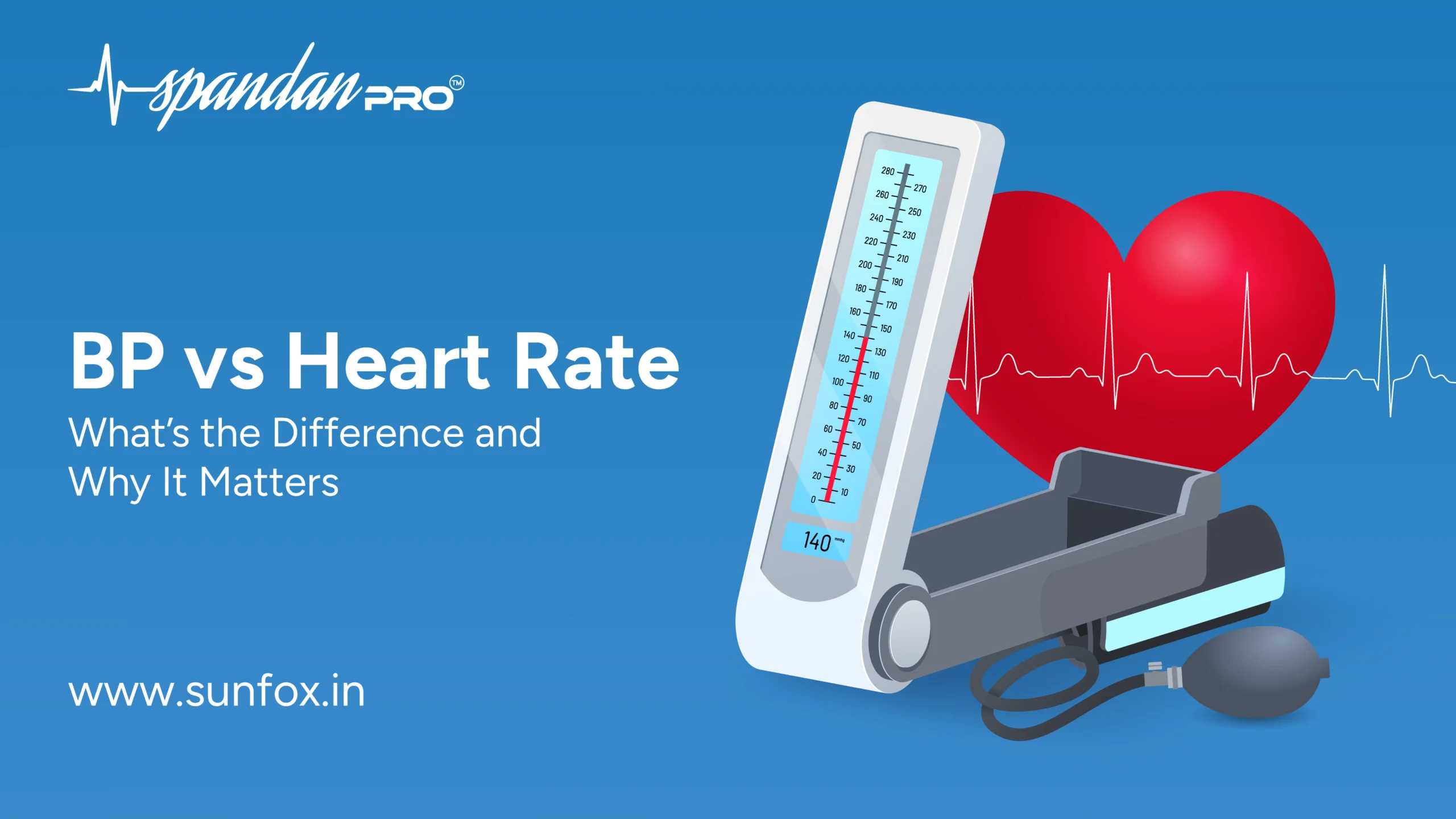
BP vs Heart Rate: What’s the Difference and Why It Matters
Table of Contents
Whenever you visit the doctor for an appointment, one of the first things he measures is your blood pressure and heart rate, but have you ever wondered what is the difference between them?
Many people mix up blood pressure and heart rate or assume they’re basically the same thing. In reality, they measure very different things about your heart health and understanding both can give you valuable insights into how your body is doing.
So today, in this blog, let’s dive into the topic of BP vs heart rate—what they mean, how they differ, and why both are important for your heart health.
Understanding Blood Pressure and Heart Rate
Before diving into the topic of BP vs heart rate, let’s first learn the meaning of blood pressure and heart rate:
Blood Pressure:
It can be defined as the force with which the blood is pushed against the walls of the arteries as the heart pumps.
You may have heard blood pressure readings like 120/80 mmHg, and you’ll notice that blood pressure is always expressed as two numbers rather than one. That’s because blood pressure is measured using two values:
- Systolic pressure: This measures the pressure when your heart beats and pushes blood through the arteries.
- Diastolic pressure: This reflects the pressure when your heart is resting between beats.
Normal blood pressure is usually less than 120/80 mmHg. If it’s too high, it is known as hypertension, or if it’s too low, it is known as hypotension, which can cause health problems.
Heart Rate:
Heart rate, also known as pulse rate, can be defined as the number of times your heart beats in a minute. It’s measured in beats per minute (bpm). A normal heart rate for adult is usually between 60 and 100 bpm.
Your heart rate isn’t constant—it changes depending on your activity, stress levels, emotions, body temperature, and even medications. For example, your heart rate naturally increases during exercise and slows down while you’re sleeping or resting.
BP vs Heart Rate

While both blood pressure and heart rate are key indicators of heart health, they measure very different things. Here’s a quick comparison to help you understand the key differences between BP vs heart rate:
What It Measures
- Blood Pressure (BP): Measures the force of blood pressing against artery walls during the heart’s pumping and resting phases. It reflects how hard the heart is working to move blood through the vessels.
- Heart Rate (HR): Measures the number of heart beats per minute, showing how fast or slow your heart is beating at a given moment.
Units of Measurement
- BP: Expressed in millimeters of mercury (mmHg), always as two numbers (e.g., 120/80 mmHg).
- HR: Expressed in beats per minute (BPM), as a single number (e.g., 75 bpm).
Blood Pressure Ranges
A healthy adult’s BP is typically less than 120/80 mmHg. Maintaining blood pressure within this range is important for reducing the risk of heart disease and stroke.
- Elevated BP: Systolic blood pressure is between 120 and 129 mmHg, while diastolic blood pressure is less than 80 mmHg.
- Stage 1 hypertension: Systolic blood pressure ranges from 130 to 139 mmHg, while diastolic pressure ranges from 80 to 89 mmHg.
- Stage 2 hypertension: Systolic blood pressure is more than 140 mmHg and diastolic blood pressure is more than 90 mmHg.
- Hypertensive Crisis: Systolic pressure above 180 mmHg and diastolic pressure above 120 mmHg.
- Elevated BP: Systolic blood pressure is between 120 and 129 mmHg, while diastolic blood pressure is less than 80 mmHg.
Heart Rate Ranges
A normal resting heart rate is 60–100 bpm. It’s important to note that factors such as age, fitness level, and overall health can influence heart rate.
- Tachycardia: A heart rate above 100 bpm indicates tachycardia, which is defined as a condition where the heart beats faster than the normal resting rate, typically over 100 beats per minute in adults.
- Bradycardia: Bradycardia is defined as a slower than normal heart rate, typically defined as less than 60 beats per minute.
Measurement Tools
Understanding how each vital sign is measured helps you choose the right device and ensures more accurate readings. Below is a breakdown of tools used to measure blood pressure (BP) and heart rate, along with what each one does:
Blood Pressure:
- Manual Sphygmomanometer: A sphygmomanometer is an essential tool used to measure blood pressure, providing vital information about an individual’s cardiovascular health. The device consists of an inflatable cuff, a measuring unit (a column of mercury), and a pressure gauge.
- Digital Sphygmomanometer: An easy-to-use electronic device that automatically inflates the cuff and displays both systolic and diastolic pressure on a screen.
Heart Rate:
- Manual pulse check: A basic method where you count your heartbeats over 15–60 seconds by feeling your pulse at common points like the wrist or neck. If you count for 15 seconds, multiply the result by four to obtain beats per minute.
- Fitness trackers: Wearable devices like smartwatches that use optical sensors to track heart rate continuously throughout the day and during activities.
- Chest straps: Worn around the chest during exercise, these provide real-time heart rate readings by detecting electrical signals from the heart.
- Portable ECG machine: Compact, handheld devices for home use that offer medical-grade accuracy to detect irregular heart beats and monitor heart health.
Factors affecting Blood Pressure and Heart Rate
Several factors can significantly influence blood pressure and heart rate, including:
- Diet: The types of foods consumed, such as those high in sodium, fat, or sugar, can affect blood pressure levels and heart rate
- Exercise: Physical activity generally promotes heart health, leading to lower resting heart rate and healthier blood pressure readings.
- Stress: Emotional or psychological stress can cause temporary increases in both blood pressure and heart rate due to the body’s “fight or flight” response.
- Sleep: Quality and quantity of sleep can affect cardiovascular health; inadequate sleep may lead to higher blood pressure and heart rate.
- Hydration: Fluid intake plays a vital role; dehydration can lead to increased heart rate and blood pressure.
- Medical Conditions: Chronic illnesses, such as diabetes or kidney disease, can have a profound impact on heart rate and blood pressure.
- Caffeine and Alcohol: Consumption of stimulants like caffeine or depressants like alcohol can influence heart rate and blood pressure.
How Blood Pressure and Heart Rate affect the Heart
Abnormal blood pressure (BP) can significantly affect the heart and the overall cardiovascular system. When blood pressure is consistently high, as seen in hypertension, it forces the heart to work harder to pump blood against the increased resistance in the arteries. Over time, this can lead to heart enlargement, arterial damage, and an increased risk of heart attack, stroke, and heart failure.
On the other hand, low blood pressure (hypotension) can prevent adequate blood flow to vital organs, including the heart, leading to dizziness, fainting, and potentially causing organ damage if left untreated.
Similarly, abnormal heart rate can also have serious implications for heart health. A heart rate that is too fast (tachycardia) can cause the heart to pump inefficiently, leading to reduced oxygen supply to the body and increasing the risk of heart failure or arrhythmias. On the other hand, a heart rate that is too slow (bradycardia) can indicate that the heart isn’t pumping enough blood to meet the body’s needs, potentially causing fatigue, dizziness, or even cardiac arrest in extreme cases. Both high and low heart rates can lead to an increased risk of heart complications and affect the heart’s ability to function properly over time.
In conclusion, while BP vs heart rate are both vital signs of heart health, they measure different aspects of cardiovascular function. Blood pressure reflects the force of blood against artery walls, and heart rate tracks how fast the heart is beating. Monitoring both regularly can provide valuable insights into your heart’s health and allow for early detection of potential issues.
BP vs heart rate should not be confused, as each plays a unique role in your overall health. Understanding the connection between the two and how various factors affect them can help you take proactive steps toward maintaining a healthy heart. Whether it’s through lifestyle changes or medical interventions, managing both BP vs heart rate is key to reducing the risk of serious heart complications and promoting long-term wellness.
